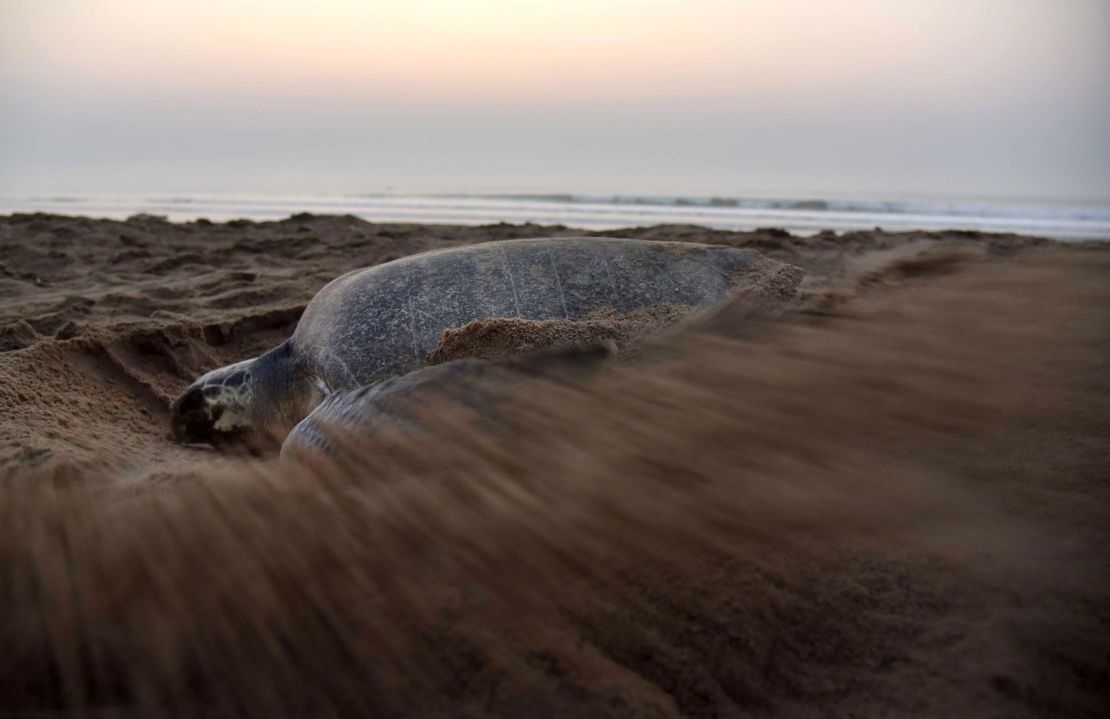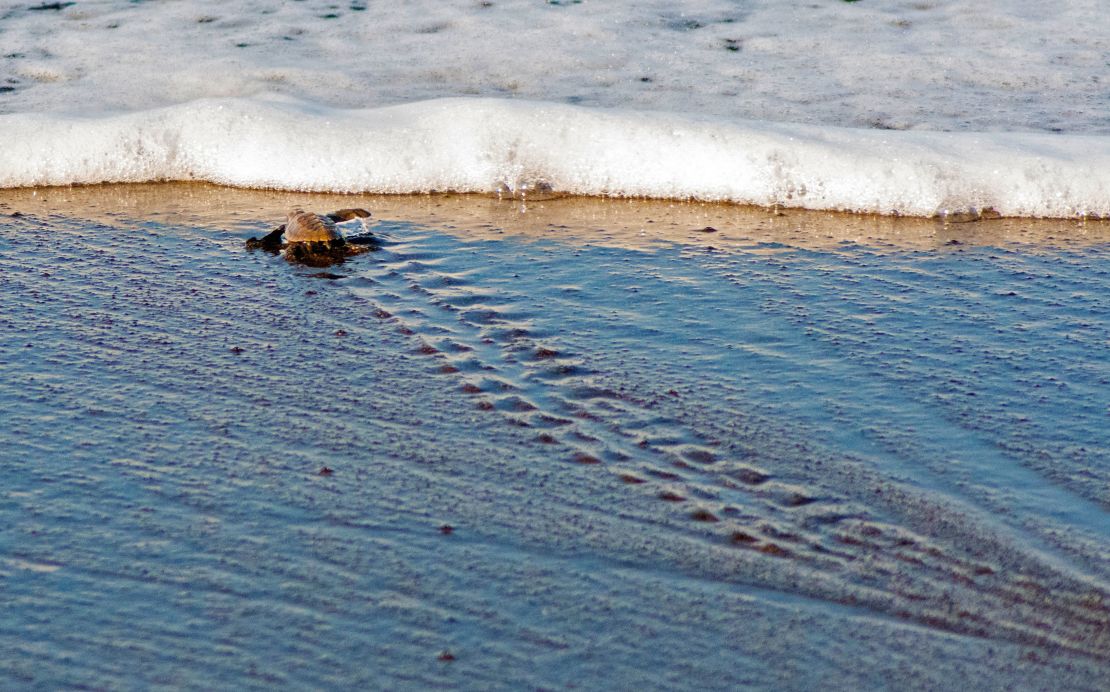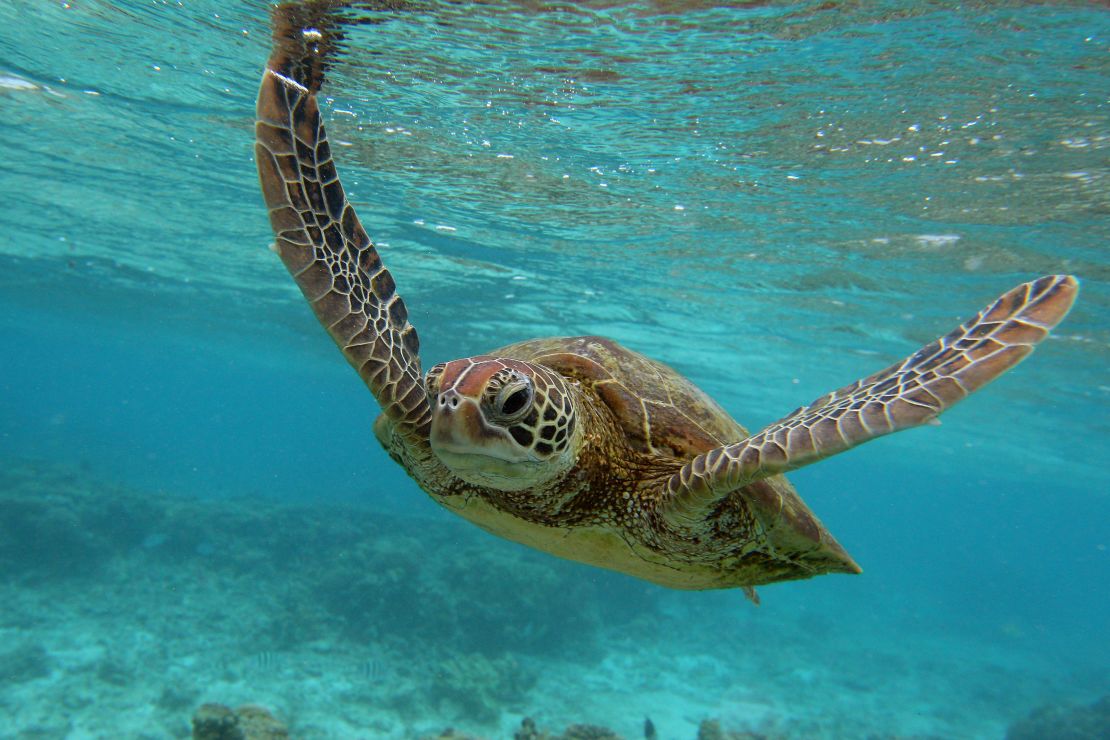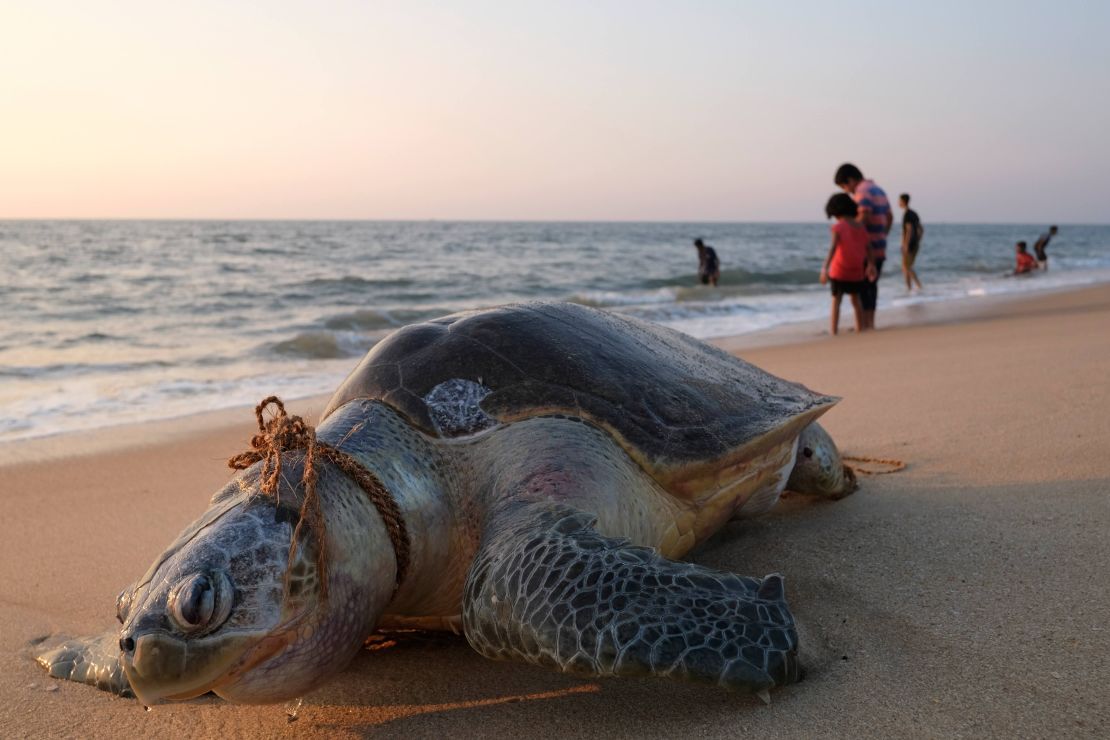A narrative has emerged during the Covid-19 pandemic of nature returning in our absence. One example is turtles, with reports of them “thriving” during lockdown, and bumper hatchings on empty beaches as humans stay indoors.
But the pandemic is also bringing new threats for some turtles, and challenging times for organizations dedicated to conserving them.
There has undoubtedly been good news. In Rushikulya, India, for example, the arribada (mass nesting) of over 200,000 olive ridley turtles benefited from the local lockdown, says BC Choudhury, executive trustee and senior scientific advisor of the Wildlife Trust of India.
There were no humans or livestock on the beach to trample the eggs; and without people to scavenge from, there were few stray dogs around to raid turtle nests. When turtle hatchlings emerged in early May there was less light pollution from highway traffic to disorient them, meaning they moved straight into the sea.
“The benefit of no visitors this year may make the management think of visitor control during the next arribada season,” says Choudhury.
In Florida, turtle threats including boat strikes and entanglement in beach furniture decreased as crowds stopped flocking to the beaches and surrounding waters, explains Brad Nahill, president and co-founder of SEE Turtles, a US-based non-profit promoting ecotourism.

However, empty beaches can also create problems. In many countries, economic opportunity is a crucial factor in safeguarding turtles. Turtles draw tourists and tourism provides jobs – either directly or indirectly related to turtles. But Covid-19 has decimated the tourism industry.
Nahill says in some communities in proximity to turtles, more people have become “desperate” for income and food. An uptick in illegal turtle hunting and egg collection has been observed in some countries as coronavirus makes it harder for people to earn a living, he says.
“We have reports (of) this happening in a number of places including multiple sites in Costa Rica, as well as Panama, Grenada, Sri Lanka, Nicaragua and Mexico,” he says.
The collapse in foreign travel has also affected ecotourism and voluntourism (volunteers paying to work at conservation groups), which are essential to many turtle organizations’ funding models. Nahill says SEE Turtles’ income from organizing tours is down 75% on previous years.
Didiher Chacon Chaverri, executive director of Latin American Sea Turtles Association (LAST), says international voluntourism has completely collapsed. As a result, “our budget has disappeared,” he says. Voluntourism also provides crucial headcount for beach monitoring. “If we are not present on the beaches with our volunteers, poachers dominate the stage,” says Chaverri.

LAST has had to halve the pay of some staff and let others go, and organizations CNN spoke to in Mexico and Brazil also reported having to cut back conservation efforts or pause them completely, citing economic factors.
These groups are doing all they can to weather the storm. “(It’s) not easy, but our work (is) our life,” says Chaverri. He said LAST staff are working 60-hour weeks looking for funds and designing fundraising campaigns to cover costs.
Nahill says a forgivable government loan and a “large anonymous donation” has stabilized SEE Turtles for the year. However, “if tourism continues to be stalled through 2021, the situation could get very dire for our organization,” he adds.
Help from afar

With some conservation groups hamstrung at present and facing an uncertain future, it is more important than ever for members of the public to help out.
Roderic Mast, president and CEO of the Oceanic Society and editor of the annual State of the World’s Sea Turtles (SWOT) report, says people can help by reporting incidents of turtles nesting or suspicious activity, like poaching, to local authorities. “These reports can help protect turtles when scientists may be off the beach due to Covid,” he said.
Even people thousands of miles from the nearest turtle can play their part. “I think that people are really acutely aware in this scenario of their impacts on nature,” says Brian Hutchinson, vice president of outreach at the Oceanic Society and SWOT co-founder. He believes that stories of nature rebounding during lockdowns could prompt people to make better environmental choices.
A recent study suggested turtles may mistake plastic bags for food; climate change-related sea level rise and stronger storms will erode beach habitats, says NASA; bycatch (when turtles are caught unintentionally during fishing for another species) is a huge threat.

The Oceanic Society’s Blue Habits Program says anyone can improve sea turtle prospects by reducing their plastic footprint, reducing their carbon footprint and making sustainable seafood choices.
“I don’t expect that peoples’ lives are going to change dramatically right after this,” Hutchinson says, but argues “(lockdown) is likely to make people more receptive to that messaging.”
It’s clear turtles need both space from people and their support. For now, in many cases, turtles will have to thrive or survive with less direct human intervention.
“The ocean is the last frontier of our mainland impacts,” says Chaverri, “and its life needs a lot of help right now.”




















